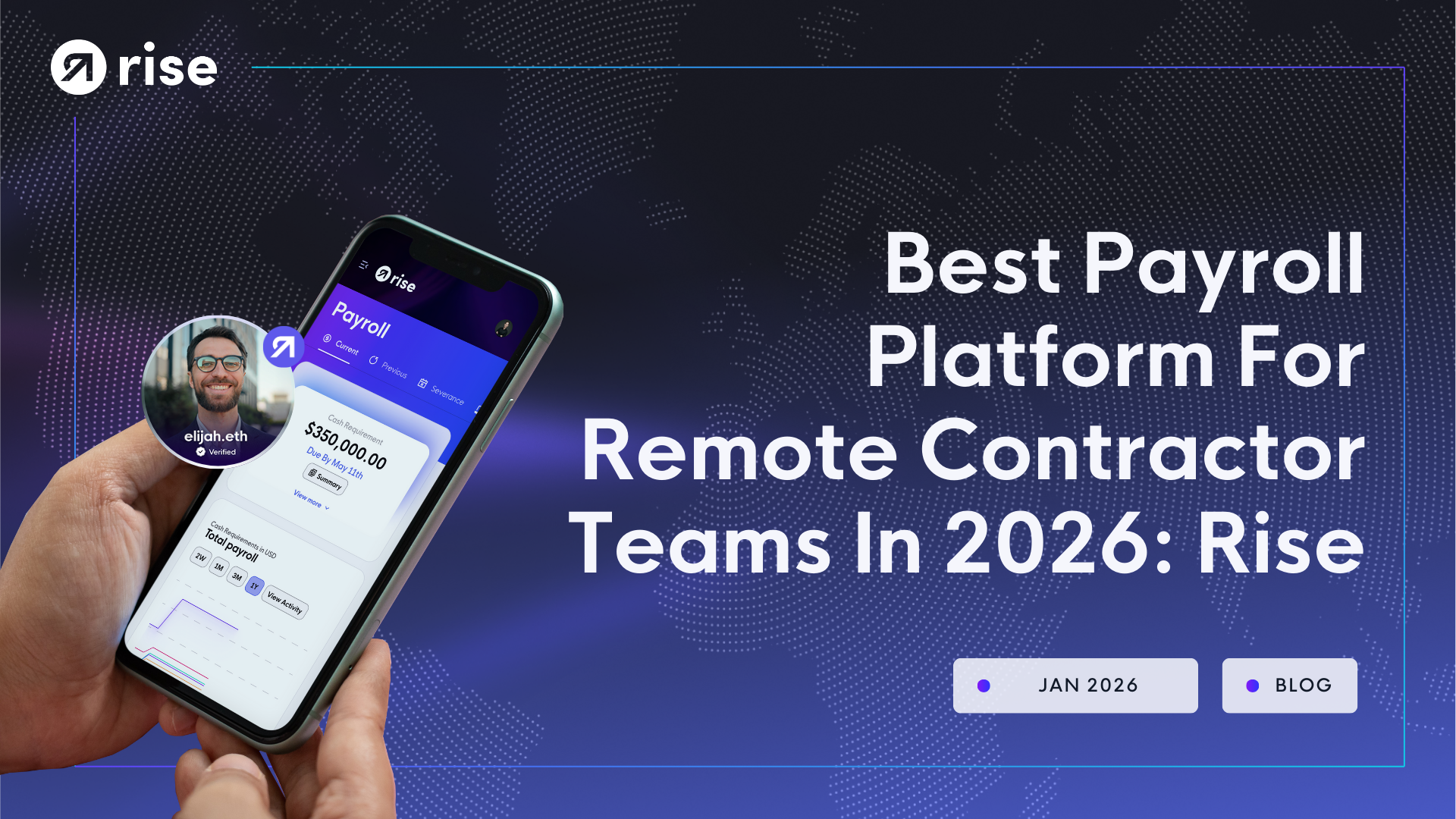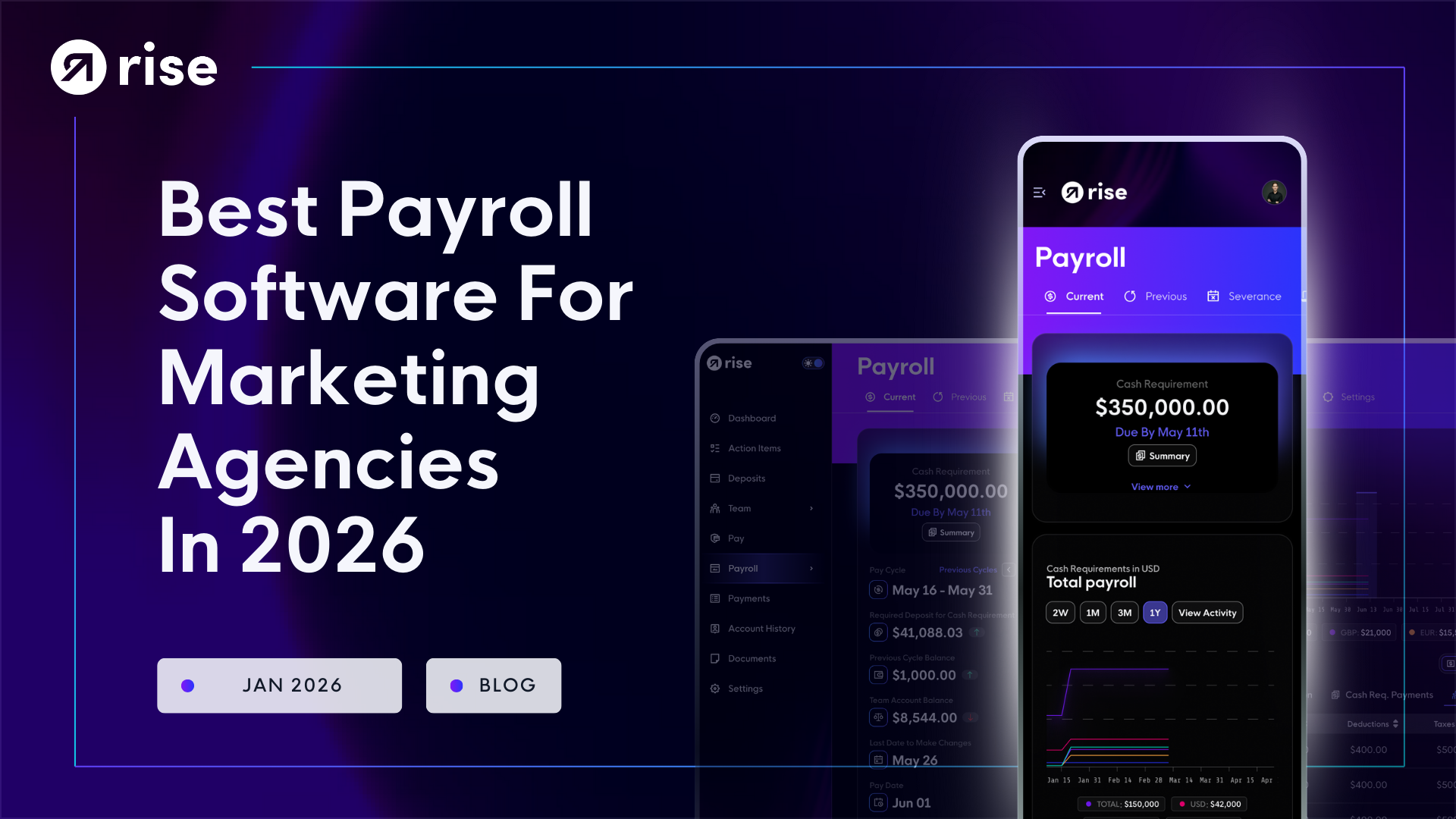As DAOs become more popular, it's very important to create good governance models and make sure they follow rules, especially for handling payroll.
This guide will provide a full overview of effective DAO governance principles, strategies for maintaining compliance, and best practices for managing payroll in a hybrid fiat-crypto framework.
Understanding DAO Governance
DAO governance refers to the principles and processes used to facilitate decision-making, transparency, inclusivity, and decentralisation within an organisation.
Transparency is a key aspect of DAO governance, enabling members to have access to information and track the decision-making process. Inclusivity ensures that all stakeholders have a voice and can participate actively in decision-making.
Optimal Governance Structures for DAOs
When it comes to governance structures for DAOs, it is essential to consider legal considerations and compliance challenges that arise when managing payroll across fiat and cryptocurrency.
Various governance models exist, each with its pros and cons.
Token-based voting systems:
In this model, voting power is determined by the number of tokens held by each member.
Advantages:
Decentralization and Democracy: A decentralised governance model is promoted where the ability to make decisions is distributed among token holders.It enables a democratic approach where each token represents a vote, allowing for a broad participation in governance decisions.
Alignment of interests: Because token holders have a financial stake in the DAO, they are incentivized to vote in a manner that they believe will increase the value of the organisation and by extension, their tokens. This can lead to decisions that are in the best interest of the organisation’s long-term success.
Efficiency and Speed: Voting processes can be executed on the blockchain, making them transparent, immutable and faster compared to traditional governance models. Smart contracts can automate the execution of decisions based on the outcome of votes, reducing administrative overheads.
Global participation: Token-based voting allows for participation from anywhere in the world, provided the participant holds tokens. This global inclusivity can lead to diverse viewpoints and contributions to the governance process.
Disadvantages:
Wealth Concentration: There is the ever-present risk of centralization via wealth concentration, where entities with a large number of tokens can have a disproportionate influence on decisions. This can lead to governance that favours a specific group and is therefore undemocratic.
Low Voter Turnout: Just like in traditional voting, token-based voting can be subject to low participation rates. Token holders may not always have the time, interest or understanding to vote on proposals which can lead to decisions being made by a small fraction of the community.
Short-termism: Token holders might be inclined to vote for proposals that favour short-term gains over long-term stability and growth, especially if they are speculators rather than investors. This can lead to decisions being made that are not in the best interest of the DAO’s future.
Complexity and Accessibility: Due to their technical nature, DAOs and token-based systems can have a high barrier of entry for potential participants.
The complexity of understanding how these systems work, along with the need to own cryptocurrencies can exclude non-technical or financially less savvy individuals from participating.
Liquid democracy:
Liquid democracy combines direct voting and delegation. Members can either vote directly on issues or delegate their voting power to others they trust. This model allows for flexibility while ensuring participation.
Advantages:
Dynamic Representation: Unlike static representative systems, liquid democracy’s fluid delegation mechanism means that representation can change rapidly in response to new information or shifting priorities, ensuring that governance is more responsive to the current context and community sentiment.
Expertise and Efficiency: Delegating votes to members with specific expertise can lead to more informed and effective decision-making. This is particularly beneficial in a DAO where decisions will often require understanding complex and technical issues.
Disadvantages:
Security and delegation risks: The delegation mechanism could be exploited through social engineering or malicious activities, where individuals or groups deceive others into delegating their votes, thereby accumulating disproportionate influence.
Engagement fatigue: The flexibility of liquid democracy might lead to a paradox where users, overwhelmed by the constant need to evaluate and choose delegates, opt to disengage from the governance process, effectively reducing participation over time.
Accountability Challenges: Ensuring accountability for delegates’ decisions can be difficult due to the fluid nature of vote delegation. Negative outcomes may be able to go unpunished / unresolved.
Futarchy:
Futarchy leverages prediction markets to inform decision-making. In this model, decisions are made based on the prediction of the market's outcome. This approach introduces market-driven incentives and can lead to more efficient decision-making.
Advantages:
Data-Driven Decisions: Futarchy bases decisions on the expected outcomes as predicted by market mechanisms. This means decisions are more likely to be data-driven and objective, focusing on the actions that are expected to have the best outcomes based on collective intelligence.
Incentivizes accurate predictions: Participants in the prediction markets have financial incentives to accurately forecast outcomes. This economic motivation can lead to a more reliable and informed decision-making process
Minimises direct political manipulation: Since decisions are made based on market predictions rather than direct voting, it could reduce the impact of politics or popularity during the process. This system focuses more on the expected efficacy of proposals rather than their appeal to a majority.
Disadvantages:
Implementation and operational costs: Setting up and maintaining a Futarchy system can be resource-intensive. Developing secure, reliable prediction markets and ensuring they are accessible and understandable to all participants can involve significant costs and technological challenges.
Hybrid models incorporating traditional organisational structures:
Some DAOs may choose to adopt a hybrid model that combines elements of traditional organisational structures with decentralised governance.
This allows for increased accountability and compliance while leveraging the benefits of DAO structures.
Compliance in a Hybrid Fiat-Crypto Payroll
Managing payroll in a hybrid fiat-crypto system presents unique challenges and compliance considerations that if not managed correctly could come with dire consequences for your business.
These include:
Regulatory landscape: Understanding the legal obligations and requirements related to cryptocurrency transactions, tax reporting, and labour regulations in different jurisdictions.
- Tax compliance: Ensuring accurate reporting and withholding of taxes for both cryptocurrency and fiat payments. Compliance with tax regulations is crucial to avoid potential legal issues and penalties.
- Integration of fiat and cryptocurrency payments: Integrating payroll systems to process both fiat and cryptocurrency payments requires careful consideration of the necessary infrastructure and regulatory compliance. This includes secure wallets, exchange platforms, and mechanisms for converting between fiat and cryptocurrency. Our automated routing systems ensure that your workers receive their compensation regardless of what country's fiat currency or crypto they desire.
Employee education: As employees receive payments in both fiat and cryptocurrency, it is important to educate them on the tax implications, proper reporting procedures, and potential risks associated with cryptocurrencies.
Best Practices for DAO Governance and Compliance
To establish effective governance models and ensure compliance within hybrid payroll systems, DAOs should consider implementing some of the following practices:
- Establish clear policies and procedures: Develop and document clear policies regarding payroll management, including protocols for processing payments, tax compliance, and reporting requirements.
- Implement strong internal controls: Implement robust internal controls to prevent fraud, ensure accuracy in payroll processes, and maintain compliance. This may include segregation of duties, regular audits, and ongoing monitoring of payroll processes.
- Utilise smart contracts and blockchain technology: Leverage the benefits of blockchain technology to enhance transparency, accountability, and automation in payroll processes. Smart contracts can streamline payment processing, ensure accurate tracking of transactions, and facilitate compliance with regulatory requirements.
- Engage legal and compliance professionals: Seek the guidance of legal and compliance professionals with expertise in cryptocurrency regulations and payroll management to navigate the complex compliance landscape. They can provide insights into regulatory requirements and help ensure adherence to applicable laws.
Educate employees and DAO members: Provide comprehensive training and education programs to ensure employees and DAO members understand their compliance obligations, tax implications, and best practices for managing cryptocurrency payments.
Conclusion
Effective governance and compliance are critical for the success and sustainability of DAOs, regardless of their operating parameters.
By implementing the best practices, engaging legal experts, and staying informed about regulatory frameworks, DAOs can ensure transparency, inclusivity, and compliance while effectively managing their payroll systems.
Whether you manage your treasury via a Gnosis Safe or another multisig, Rise is the perfect solution to pay DAO contributors in their choice of fiat or crypto for their work using traditional pay schedules.




















